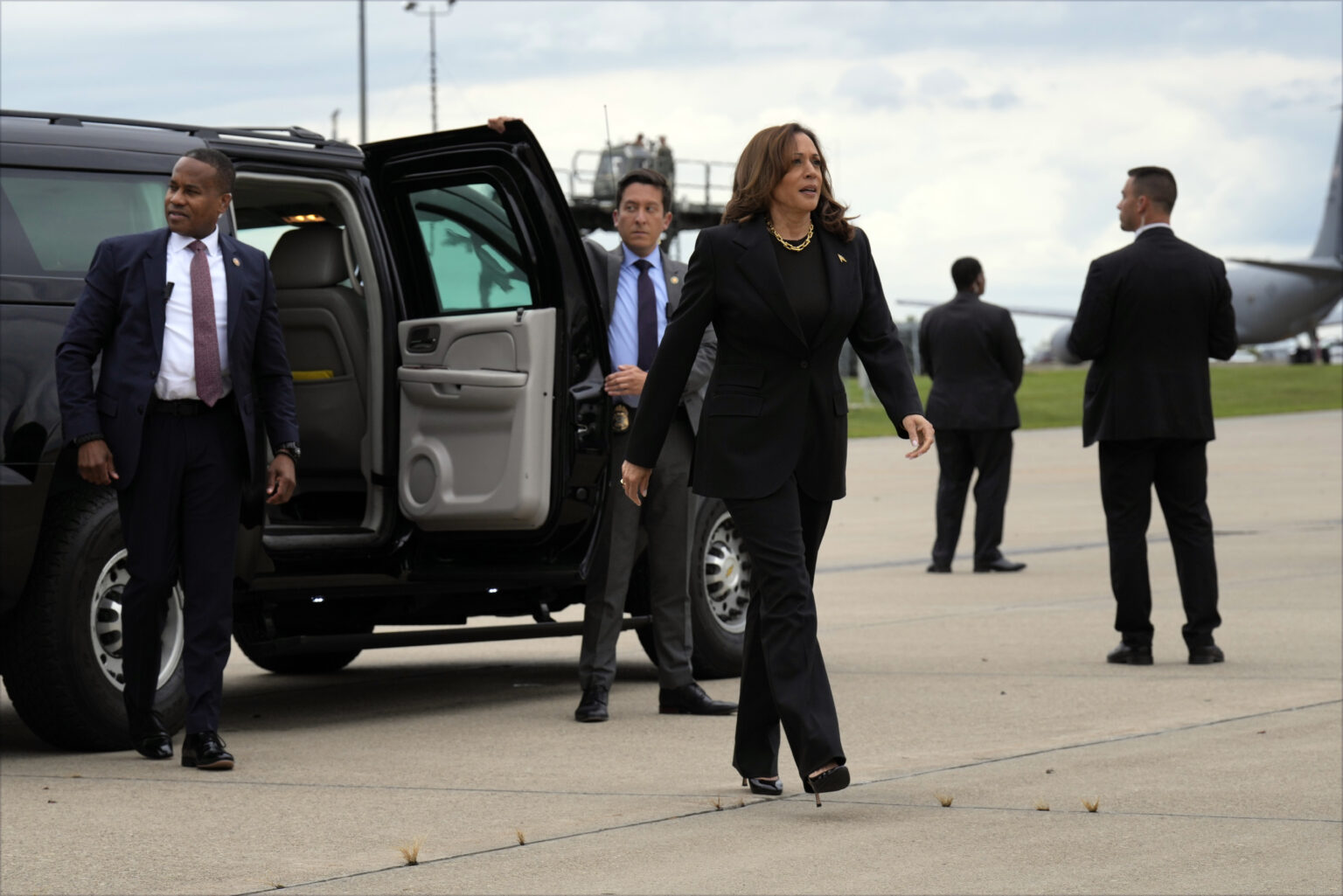Vice President Kamala Harris used her first major solo interview to push her economic message and ding Donald Trump, as the Democratic presidential nominee moved to address some of her biggest vulnerabilities this week.
Harris’ sitdown with MSNBC’s Stephanie Ruhle followed an economic speech in Pittsburgh on Wednesday, part of her effort to reverse Trump’s advantage with voters on the economy. She used that speech to add layers to an economic plan Republicans have slammed as thin, promising to eliminate degree requirements for federal jobs, double union apprenticeships in her first term and reform permitting to speed up building projects.
The sitdown built on Harris’ message as voters across the country continue to express concerns about high prices. But it also offered an opportunity for her to attack Trump on the economic front, including on tariffs, a policy tool the former president has cast as a solution to problems ranging from high prices to war and the cost of child care.
“Well, part of it is you just don’t throw around the idea of tariffs across the board,” Harris said. “That’s part of the problem with Donald Trump. Frankly, I’m going — and I say this in all sincerity — he’s not serious about how he thinks about some of these issues. And one must be serious and have a plan and a real plan that’s not just about some talking point ending in an exclamation at a political rally.”
The campaign’s decision to select Ruhle — a friendly interviewer for Harris — for the first national, solo sit down has drawn criticism. But Ruhle was also an advantageous choice for Harris. The MSNBC host’s deep expertise on the economy offered the vice president a venue to answer questions about her economic agenda as she tries to draw contrast with her opponent and increase voters’ trust on economic issues.
“Not everyone gets handed stuff on a silver platter. My vision for the economy — I call it an opportunity economy — is about making sure that all Americans, wherever they start, wherever they are, have the ability to actually achieve those dreams and those ambitions,” Harris said.
In response to one of the more challenging questions — about the International Brotherhood of Teamsters declining to endorse her last week — Harris dodged twice. The lack of endorsement was a blow to the vice president’s campaign as it seeks to maintain the kind of union support President Joe Biden garnered in 2020. The powerful union is also connected to working class voters in battleground states who could be critical to Harris in November, and the lack of consensus among its million-plus members has spooked some Democrats.
“I’m proud to have the endorsement of the steel workers and almost every other major union in America because I stand by workers,” Harris said. “And I stand by the importance of being able to join a union and to understand the benefit and the value of unions. And I understand the importance of investing in new industries and working actively with the private sector to grow our economy.”
Harris was also asked to respond to Trump’s efforts to appeal to women in recent weeks, as he tries to repair damage with the voting bloc. The vice president slammed Trump for his role in overturning Roe v. Wade, and talked about the consequences of the Supreme Court ruling: “I don’t think the women of America need him to say he’s going to protect them. The women of America need him to trust them,” Harris said.
But it’s Harris’ own weak spots she is focusing on this week. After a day focused on the economy, she’ll turn her attention to her second biggest vulnerability and one of Trump’s favorite lines of attack: immigration.
Harris will travel to Douglas, Arizona, on Friday, where she’ll make a stop at the southern border. Border crossings are now lower than during Trump’s last month in office, plummeting after Biden clamped down on asylum in June. The vice president will use the visit to speak about border security, hitting Trump for his role in killing the bipartisan border deal earlier this year, according to a campaign aide granted anonymity to speak freely about a trip still in planning stages.
She will also highlight her background as attorney general of California, and her work on international gangs and criminal organizations who trafficked humans, guns and drugs — a piece of her bio she’s touted repeatedly on the trail. Harris is also expected to talk about building a “secure, fair, orderly and humane” immigration system, moving to draw a contrast with Trump’s rhetoric and immigration policy plans, the official said.
During Wednesday’s interview, Harris again vowed to bring back the border bill and sign it into law.
“And we need a comprehensive plan that includes what we need to do to fortify not only our border but deal with the fact that we also need to create pathways for people to earn citizenship,” she said.
Read the full article here


